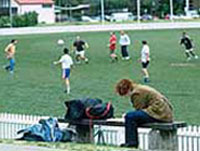Resolving Civil Disputes - JURD7271
Faculty: Faculty of Law
School: Faculty of Law
Course Outline: See below
Campus: Sydney
Career: Postgraduate
Units of Credit: 6
EFTSL: 0.12500 (more info)
Indicative Contact Hours per Week: 4
Enrolment Requirements:
Prerequisite: Principles of Private Law (LAWS1150/JURD7150) and Contracts (LAWS1075/ JURD7175)
Equivalent: JURD7211
Excluded: JURD7211, LAWS2311, LAWS2371
CSS Contribution Charge: 3 (more info)
Tuition Fee: See Tuition Fee Schedule
Further Information: See Class Timetable
View course information for previous years.
Description
Main Topics
The aims of the course are to ensure that you are familiar with the central principles of:
Civil Procedure:
- Jurisdiction
- Case management
- Initiating proceedings and pleadings
- Causes of action and parties
- Service
- Discovery
- Preparing evidence
- Enforcement
- Appeal
- Costs
- Negotiation
- Mediation
- Arbitration









